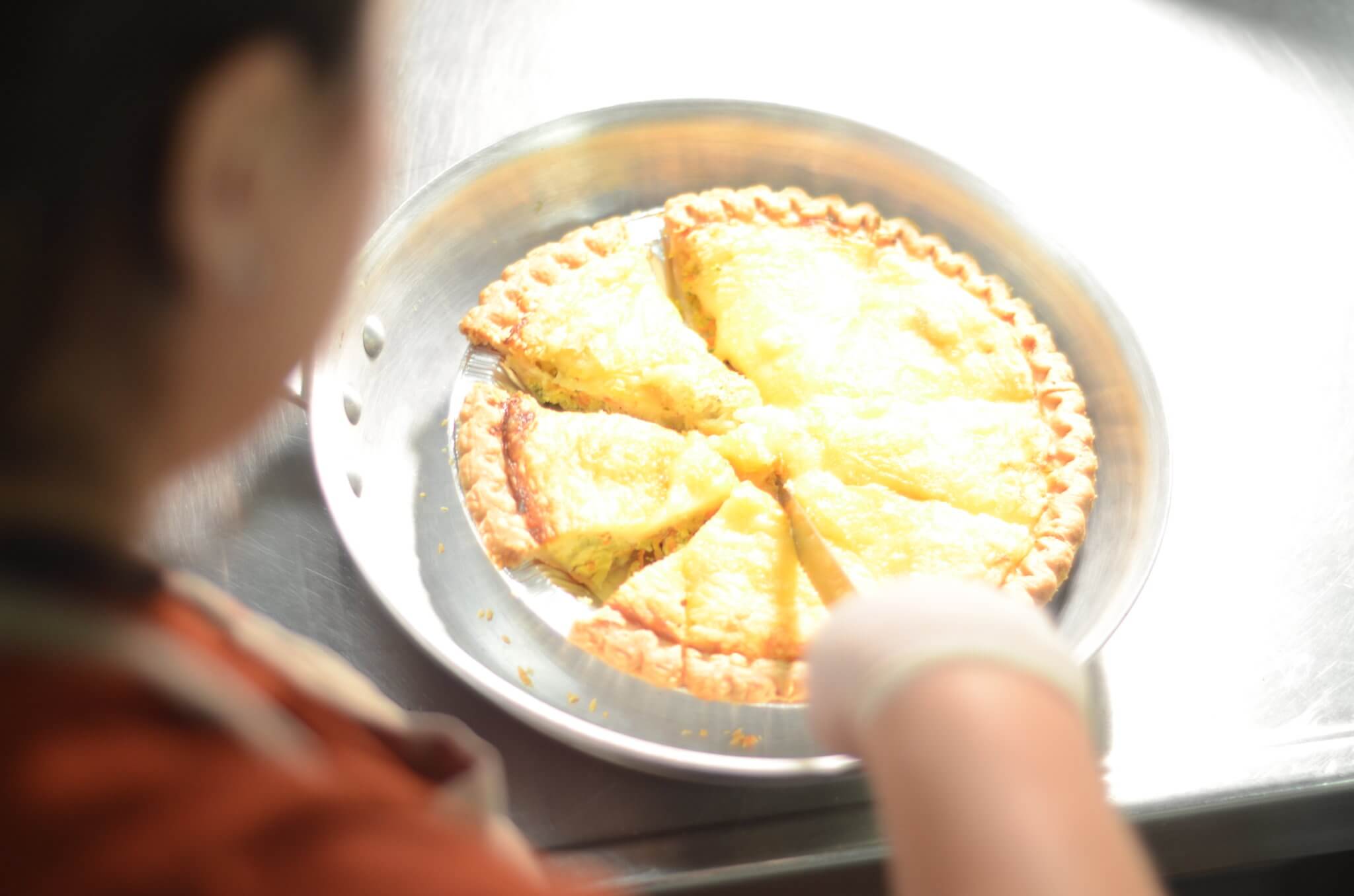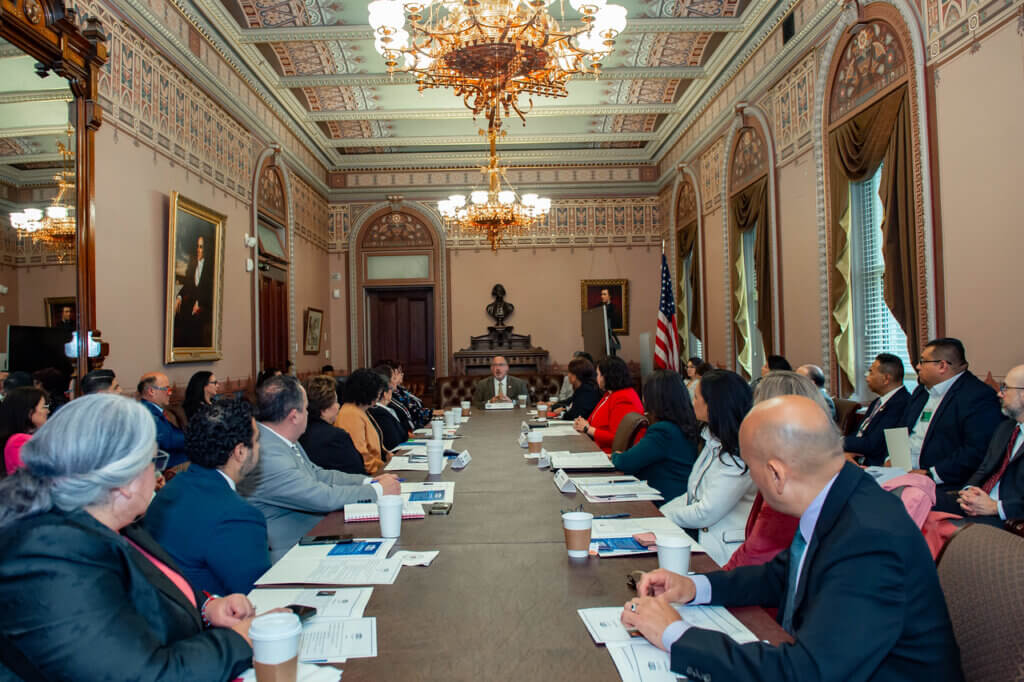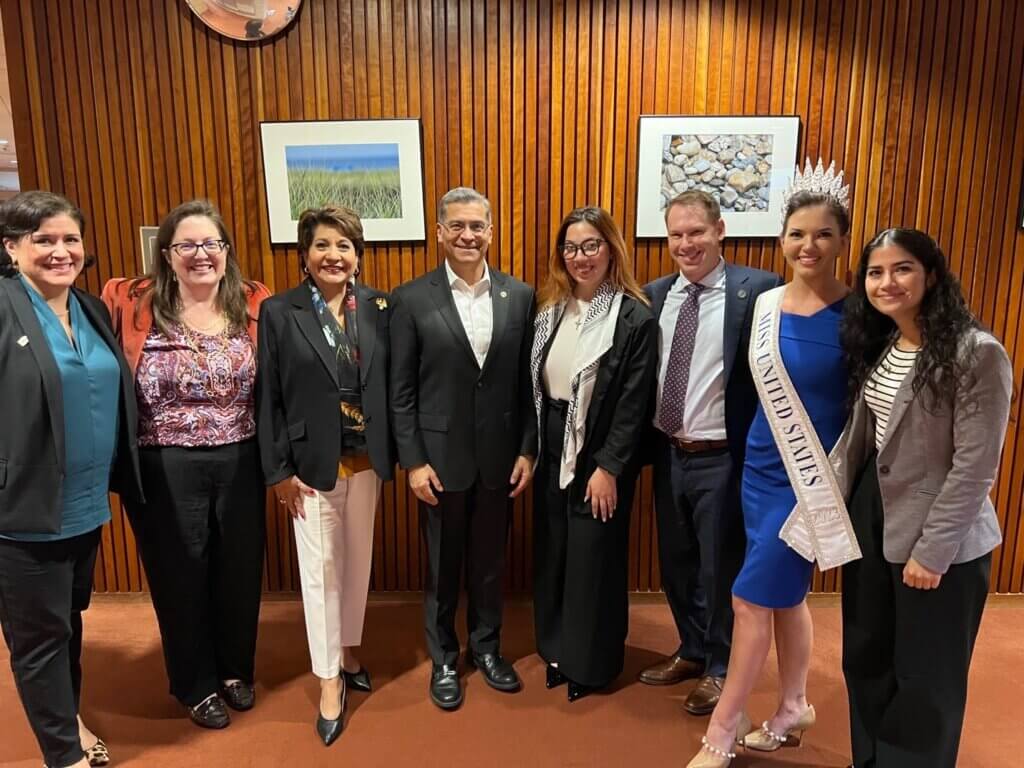Food for thought: Bringing better food to families year-round
For many of us, Thanksgiving is a day to spend time with the people we love, be grateful for all that we have, and, of course, enjoy a fabulous meal. There’s nothing like the anticipation of knowing that our best friend, cousin, uncle, or mother will be bringing their famous dishes, then sitting down together to enjoy it all. In the spirit of gratitude and community that makes Thanksgiving our favorite part of the year, it’s also a good time to reflect on how differently one family eats compared to another.
The pandemic has brought to light many of the inequities that people of color face in this country, one of them being hunger and food insecurity. As many as one in eight people in the United States are food-insecure, living without consistent access to quality, healthy food. And because of racial prejudice and barriers like language, education, and cultural differences, Latinos are especially vulnerable to a lack of access to good food.
The root-cause of hunger and food insecurity is nearly always poverty—a combination of problems that are overwhelming to think about, yet far too many families deal with every day. According to the latest Census, one in six Latinos live in poverty, compared to one in 16 white people.
Keep up with the latest from UnidosUS
Sign up for the weekly UnidosUS Action Network newsletter delivered every Thursday.
We’re committed to stopping inequality of all kinds in this country, including by making sure all Americans have financial stability and access to good, affordable food that will help them live healthy lives. One way to tackle food insecurity is to end poverty: Making sure families have access to health care and good jobs can bring them out of poverty, help them stay on a stable path, and allow them to thrive physically, mentally, and financially.
While we fight to end poverty, programs like SNAP, the Supplemental Nutrition Assistance Program, helps people access better food, though the process for accessing SNAP can be challenging. Our own program, Comprando Rico y Sano, assists eligible Latinos enroll in SNAP while helping them enhance their understanding of nutrition and eat healthier with limited resources, grocery shopping, and cooking demonstrations. There are currently 27 community-based Affiliate organizations implementing the program with trusted members of their communities—called promotores de salud—leading informal charlas, or chats, to promote healthier eating in a friendly and encouraging setting, and providing information and enrollment assistance in SNAP and other federal nutrition programs.
The promotores de salud do amazing work breaking down barriers to accessing SNAP and nutritious food, and combining work in communities with advocacy where laws are made have been the key to our success for decades. In Texas, we recently fought to modernize a law that made it more difficult to enroll in SNAP. Those who applied for SNAP had to report the value of a car in their household, which determined if they were eligible for the program. It was an outdated rule and punished working families by forcing them to make a difficult choice: sell their vehicle and risk losing their job or keep the vehicle and risk going hungry because they make too much to qualify for SNAP, but not enough to feed their families. The change in legislation would not have been possible without the feedback and support of our Affiliates and stakeholders in the region working to address inequalities, namely those who participate in Comprando Rico y Sano including the Mexican American Unity Council in San Antonio, the Concilio in Dallas, the Tejano Center for Community Concerns in Houston, and the Association for the Advancement of Mexican Americans, also in Houston.
While it’s still not perfect, the change makes SNAP more inclusive of working families in Texas, who report uncertainty as the pandemic continues. When we polled Latino parents recently, the number-one ask they had for Congress was to increase free school meals to include breaks and summer vacation. It’s clear that stronger programs are needed to fully address the food insecurity Latinos are facing. We know that programs, such as Pandemic EBT, were critical to address rising rates of hunger among Latino households in Texas.
The team at the Concilio told us about a family they served: “Recently during our Medicaid screening for additional benefits of a family, we were able to assist a family with four children apply for P-EBT. This family received over $4,000 within a month. The mother called our staff crying and thanking us for making the experience more personable and focused on the whole family needs because otherwise she would have missed out on P-EBT for a second time.”
Friends, family, and a great meal are what Thanksgiving is all about. As we go into the holiday season, let’s reflect on how to improve opportunities for those facing food insecurity and become a stronger advocate for the voiceless; for example, giving some time or attention to those who could use the healing power of good food. You can find one of our Affiliates near you and learn more about how to contribute to their—and our—cause. You can also get involved with a food bank near you, and learn about the other issues that affect Hispanics’ health.



